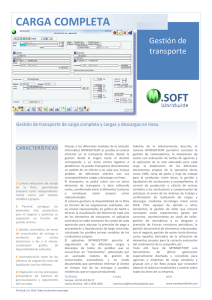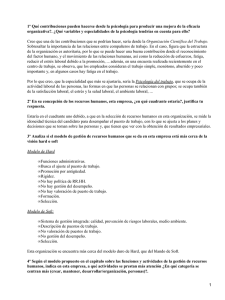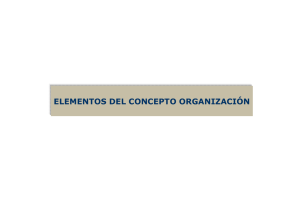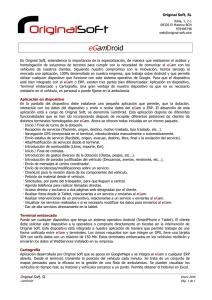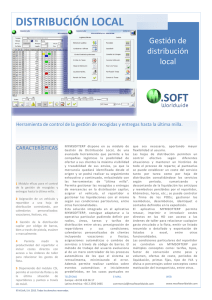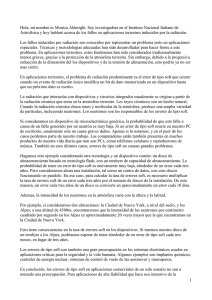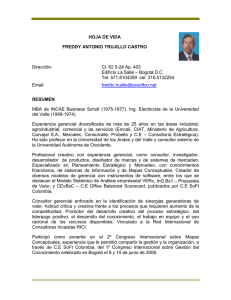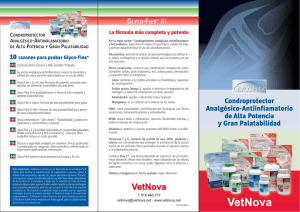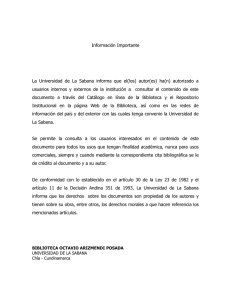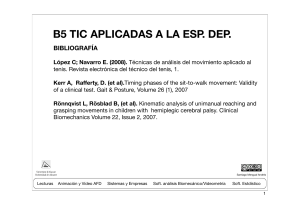07 Metodologia Soft OR
Anuncio
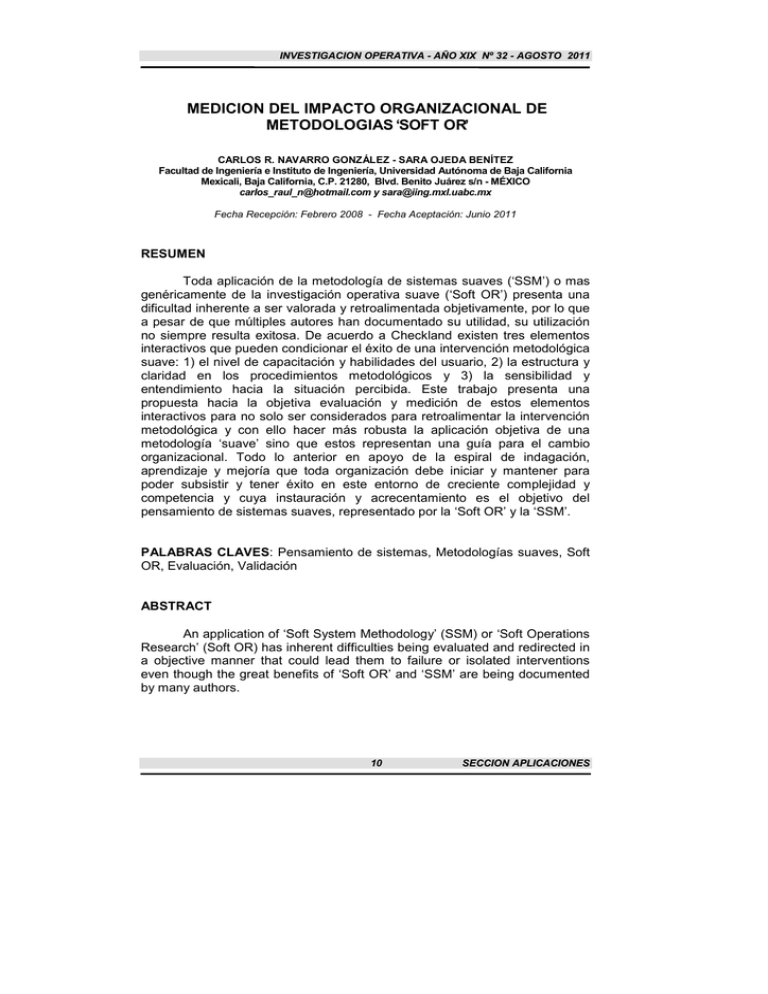
INVESTIGACION OPERATIVA - AÑO XIX Nº 32 - AGOSTO 2011 MEDICION DEL IMPACTO ORGANIZACIONAL DE METODOLOGIAS ‘SOFT OR’ CARLOS R. NAVARRO GONZÁLEZ - SARA OJEDA BENÍTEZ Facultad de Ingeniería e Instituto de Ingeniería, Universidad Autónoma de Baja California Mexicali, Baja California, C.P. 21280, Blvd. Benito Juárez s/n - MÉXICO carlos_raul_n@hotmail.com y sara@iing.mxl.uabc.mx Fecha Recepción: Febrero 2008 - Fecha Aceptación: Junio 2011 RESUMEN Toda aplicación de la metodología de sistemas suaves (‘SSM’) o mas genéricamente de la investigación operativa suave (‘Soft OR’) presenta una dificultad inherente a ser valorada y retroalimentada objetivamente, por lo que a pesar de que múltiples autores han documentado su utilidad, su utilización no siempre resulta exitosa. De acuerdo a Checkland existen tres elementos interactivos que pueden condicionar el éxito de una intervención metodológica suave: 1) el nivel de capacitación y habilidades del usuario, 2) la estructura y claridad en los procedimientos metodológicos y 3) la sensibilidad y entendimiento hacia la situación percibida. Este trabajo presenta una propuesta hacia la objetiva evaluación y medición de estos elementos interactivos para no solo ser considerados para retroalimentar la intervención metodológica y con ello hacer más robusta la aplicación objetiva de una metodología ‘suave’ sino que estos representan una guía para el cambio organizacional. Todo lo anterior en apoyo de la espiral de indagación, aprendizaje y mejoría que toda organización debe iniciar y mantener para poder subsistir y tener éxito en este entorno de creciente complejidad y competencia y cuya instauración y acrecentamiento es el objetivo del pensamiento de sistemas suaves, representado por la ‘Soft OR’ y la ‘SSM’. PALABRAS CLAVES: Pensamiento de sistemas, Metodologías suaves, Soft OR, Evaluación, Validación ABSTRACT An application of ‘Soft System Methodology’ (SSM) or ‘Soft Operations Research’ (Soft OR) has inherent difficulties being evaluated and redirected in a objective manner that could lead them to failure or isolated interventions even though the great benefits of ‘Soft OR’ and ‘SSM’ are being documented by many authors. 10 SECCION APLICACIONES INVESTIGACION OPERATIVA - AÑO XIX Nº 32 - AGOSTO 2011 According with Checkland there are three interactive elements that determine the success of failure of a soft methodological intervention: 1) the level of training and user skills, 2) the structure and clarity in the methodological procedures and 3) the sensitivity and understanding of the situation perceived. This paper presents a proposal to the objective evaluation and measurement of these interactive elements has to be considered redirecting the intervention methodology thus making a more robust application of a ‘soft methodology', also to be considered as a guide for organizational change. Supporting the aim of soft systems thinking: establish and inquiry-learning-improvement cycle that every organization should initiate as soon as possible and keep in order to survive and succeed in this increasing complexity and competitive environment. KEYWORDS: systems thinking, Soft methodologies, Soft OR, Evaluation, Validation 11 SECCION APLICACIONES
